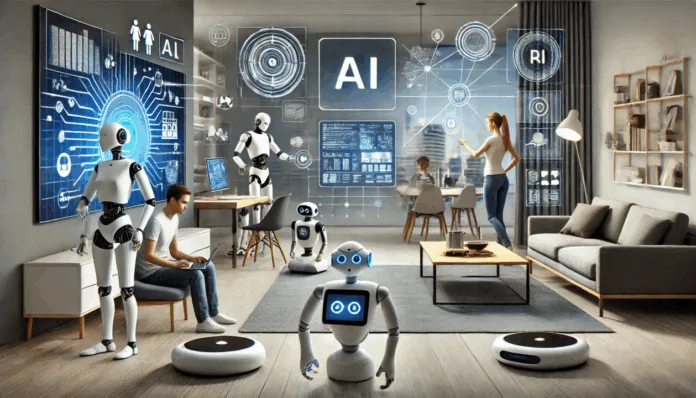
In today’s tech-driven world, robots in daily life are no longer a futuristic fantasy—they’re an active part of our routines, enhancing productivity, convenience, and safety. From household chores to complex industrial tasks, these smart machines are transforming how we live and work. As artificial intelligence (AI) and robotics continue to evolve, their integration into our daily environments is becoming seamless and incredibly impactful.
The Rise of Household Robots
One of the most visible shifts in robotics is within our homes. Smart assistants like robotic vacuum cleaners, lawn mowers, and even AI-powered kitchen helpers have turned mundane chores into automated routines. These devices use sensors, machine learning algorithms, and real-time data to perform tasks efficiently and with minimal human intervention.
Voice-activated smart home hubs also fall under the robotic umbrella, combining AI and connectivity to manage lighting, climate control, security, and even entertainment systems. With increasing advancements in natural language processing, these robots are becoming more intuitive and responsive to users’ needs.
Robots in the Workplace
Beyond the home, robots have found essential roles in workplaces across multiple industries. In manufacturing, robotic arms have streamlined assembly lines, improving precision and reducing human error. Warehousing and logistics rely heavily on automated robots to sort, pick, and transport items faster and more accurately than ever before.
In healthcare, robotic assistants are supporting surgeries, delivering medications, and even providing elderly care. These applications demonstrate the immense potential of robotics in high-stakes, human-centric environments where reliability and precision are critical.
Benefits of Integrating Robots Into Daily Life
The impact of robots in daily life is profound and multifaceted. Here are a few key benefits:
Increased Efficiency: Robots can operate around the clock without fatigue, increasing overall productivity.
Enhanced Safety: In high-risk environments like construction or disaster recovery, robots can perform tasks too dangerous for humans.
Improved Accuracy: From surgical robots to quality control systems, robotics offers a level of precision that surpasses human ability.
Convenience: Household robots free up valuable time, allowing people to focus on more meaningful or complex activities.
Challenges and Ethical Considerations
Despite their advantages, integrating robots into daily life comes with challenges. One major concern is job displacement, particularly in roles that can be fully automated. While robots create opportunities in robotics engineering and maintenance, they also disrupt traditional job markets.
Another issue is data privacy. Smart robots often collect sensitive user data to function efficiently, raising concerns about how this data is stored and used. As robots become more autonomous, there’s also an ongoing debate about how to regulate their actions and ensure accountability.
The Future of Everyday Robotics
Looking ahead, the future of robots in daily life is bright. Developments in artificial intelligence, machine learning, and sensor technology are pushing the boundaries of what robots can do. We can expect even more personalized, adaptive robots capable of learning user preferences and adapting to unique environments.
From wearable robotic exoskeletons for physical rehabilitation to robotic companions for mental health support, innovation is poised to make these machines indispensable in our lives. As society continues to embrace robotics, education systems and public policy must evolve in parallel to support this technological shift.
Conclusion
The integration of robots in daily life marks a transformative era in human-technology interaction. As these smart machines become more prevalent in homes and workplaces, they offer unprecedented benefits while also challenging us to think critically about the ethical, economic, and social implications of widespread automation. The key lies in harnessing the power of robotics responsibly and inclusively, ensuring that their presence improves the quality of life for all.